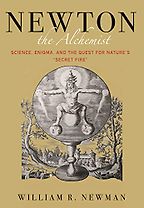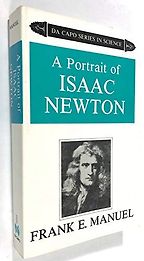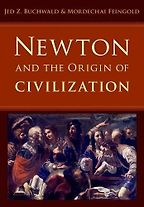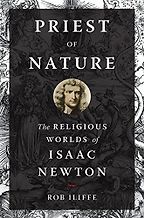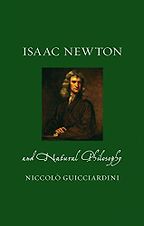
©Marleen Lipsick
Books by William Newman
William Newman is Distinguished Professor and Ruth N. Halls Professor in History and Philosophy of Science and Medicine at Indiana University, Bloomington.
“It’s a wonderful exemplar of this kind of revisionist history, where he’s trying to recover what these historical figures actually cared about, and having to sift and get back past centuries what (in the case of the history of alchemy and chemistry) are really centuries of misrepresentation.” Read more...
Interviews with William Newman
-

1
Never at Rest: A Biography of Isaac Newton
by Richard S. Westfall -

2
A Portrait of Isaac Newton
by Frank E. Manuel -

3
Newton and the Origins of Civilization
by Jed Z. Buchwald & Mordechai Feingold -

4
Priest of Nature: The Religious Worlds of Isaac Newton
by Rob Iliffe -

5
Isaac Newton and Natural Philosophy
by Niccolò Guicciardini
The best books on Isaac Newton, recommended by William Newman
The best books on Isaac Newton, recommended by William Newman
John Maynard Keynes famously cast Isaac Newton not as the first scientist of the age of reason, but the last of the magicians. How should we interpret the million words he wrote, in secret, on alchemy? What should we make of Newton’s heretical religious views? William Newman talks us through the best books for a better understanding of the complex man who was one of the greatest physicists of all time.
Interviews where books by William Newman were recommended
-

1
The Veil of Isis: An Essay on the History of the Idea of Nature
by Pierre Hadot -

2
The Way and the Word: Science and Medicine in Early China and Greece
by Geoffrey Lloyd & Nathan Sivin -

3
The Lost Age of Reason: Philosophy in Early Modern India, 1450–1700
by Jonardon Ganeri -

4
Atoms and Alchemy: Chymistry and the Experimental Origins of the Scientific Revolution
by William Newman -

5
Native Pragmatism: Rethinking the Roots of American Philosophy
by Scott L. Pratt
The best books on The History of Philosophy, recommended by Justin E. H. Smith
The best books on The History of Philosophy, recommended by Justin E. H. Smith
Today, we think of scientists and philosophers as distinct, but it wasn’t always this way. Back when the Royal Society was founded in the 1660s, figures like Newton, Descartes and Boyle all thought of themselves as ‘natural philosophers’. Justin E. H. Smith, professor of philosophy at the Université de Paris, introduces us to what he sees as the real history of philosophy.
